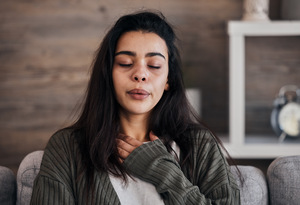Key points
- Allergy shots or immunotherapy are a long-term treatment option for allergies, which gradually expose the immune system to allergens to build tolerance.
- Allergy shots can be customized to address a wide range of specific allergies, including pet, pollen, mold, dust mite, and stinging insect allergies.
- The process of getting allergy shots involves an initial stage, upkeep stage, and regular check-ups to monitor progress and adjust dosages.
- While allergy shots can have short-term side effects such as itching, redness, and swelling, they are generally safe and do not typically result in long-term adverse effects.
- The cost of allergy shots can vary, and patients are advised to seek medical attention if they experience severe reactions or worsening allergy symptoms post-injection.

Allergy shots, also known as immunotherapy, are a long-term treatment option designed to alleviate the symptoms of various allergies, according to the Cleveland Clinic. They explain that this form of therapy involves the administration of gradually increasing doses of allergens to help the immune system build tolerance over time. By reducing the body's sensitivity to allergens, allergy shots can provide significant relief for individuals suffering from conditions such as hay fever, allergic asthma, and reactions to insect stings. This article will delve into the details of how allergy shots work, their effectiveness, and what to expect during the treatment process.
What Are Allergy Shots?
Allergy shots involve exposing the immune system to controlled amounts of allergens, which are substances that trigger allergic reactions, according to the Cleveland Clinic. They explain that by gradually increasing the exposure to these allergens, the body's immune response is modulated, leading to decreased sensitivity and improved tolerance over time.
The Cleveland Clinic explains that allergens are typically harmless substances that trigger an overreaction of the immune system in allergic individuals. Common allergens include pollen, dust mites, mold spores, pet dander, and insect venom. When someone with allergies encounters these substances, their immune system mistakenly identifies them as threats and releases chemicals like histamine, leading to symptoms such as sneezing, itching, congestion, and even more severe reactions like asthma attacks.
Allergy shots work by desensitizing the immune system to these allergens. Initially, small doses of the allergen are injected into the body, and these doses are gradually increased over a period of several months, the Cleveland Clinic notes. This process helps the immune system become accustomed to the allergen, reducing the severity of allergic reactions. Over time, many individuals experience significant relief from their allergy symptoms, allowing them to lead more comfortable and symptom-free lives.
Types of Allergy Shots
Allergy shots are a versatile treatment option that can be tailored to address a wide range of specific allergies, according to the Mayo Clinic. These injections are formulated to target the particular allergens responsible for an individual's symptoms, providing a customized approach to allergy management.
Here, we explore some of the common types of allergies for which immunotherapy is available, as listed by the Mayo Clinic:
-
Pet Allergies: Allergy shots for pet allergies help individuals who are allergic to proteins found in the skin cells, saliva, or urine of animals such as cats and dogs. Over time, these injections can reduce symptoms like sneezing, runny nose, and itchy eyes caused by exposure to pets.
-
Pollen Allergies: Also known as hay fever, pollen allergies are triggered by pollen from trees, grasses, and weeds. Immunotherapy for pollen allergies aims to build tolerance to these airborne particles, reducing seasonal allergy symptoms like nasal congestion and watery eyes.
-
Mold Allergies: Mold spores, which thrive in damp environments, can cause allergic reactions in sensitive individuals. Allergy shots targeting mold allergens can help lessen symptoms such as coughing, wheezing, and respiratory issues.
-
Dust Mite Allergies: Dust mites are microscopic organisms that live in household dust. Allergy shots for dust mite allergies can alleviate symptoms like sneezing, nasal congestion, and asthma exacerbations by desensitizing the immune system to these common indoor allergens.
-
Stinging Insect Allergies: For those who are allergic to the venom of stinging insects like bees, wasps, and hornets, allergy shots can be life-saving. This form of immunotherapy reduces the risk of severe allergic reactions, including anaphylaxis, upon future stings.
How Do Allergy Shots Work?
Allergy shots are produced through a process called compounding, where allergists create custom extracts from various sources that trigger allergies. According to the American Academy of Allergies, Asthma, and Immunology (AAAAI), these extracts are tailored to each patient's specific allergens, ensuring a personalized approach to treatment. By gradually introducing these allergens into the body, allergy shots help the immune system build tolerance and reduce the severity of allergic reactions over time.
The different stages of getting allergy shots, according to AAAAI, include:
-
Initial Stage: This phase involves the administration of gradually increasing doses of allergen injections, typically given one to two times per week. The initial stage can last from three to six months, depending on the frequency of injections and the patient's response. The goal is to slowly acclimate the immune system to the allergens, minimizing the risk of adverse reactions.
-
Upkeep Stage: Once the effective dose is reached, as determined by the patient's sensitivity and response to the initial phase, the treatment enters the upkeep stage. During this period, injections are administered at longer intervals, usually every two to four weeks. The frequency and dosage are tailored by the allergist or immunologist to maintain the benefits achieved during the initial stage.
-
Check-up Stage: Given that allergy shots are a long-term treatment, regular check-ups are essential. These appointments occur between the initial and upkeep stages to monitor the patient's progress, adjust dosages if necessary, and ensure that the treatment is effective. Continuous evaluation helps in fine-tuning the therapy for optimal results.
Short-Term Side Effects of Allergy Shots
While allergy shots are generally safe and effective, it is essential to be aware of potential short-term side effects. After receiving an allergy shot, patients are typically required to wait for 30 minutes under medical observation to ensure any immediate reactions can be promptly managed, according to the Cleveland Clinic. They note that this precaution helps safeguard against adverse effects and ensures patient safety.
Some of the possible side effects of allergy shots, according to the Cleveland Clinic, includes:
-
Itching, Redness, and Swelling: These are the most common reactions, usually occurring at the injection site. They are generally mild and resolve within a few hours.
-
Shortness of Breath: Some patients may experience difficulty breathing, which requires immediate medical attention.
-
Wheezing and Coughing: Respiratory symptoms like wheezing and coughing can occur, indicating a possible allergic reaction.
-
Hypotension: A drop in blood pressure, known as hypotension, can happen and may cause dizziness or fainting.
-
Increased Heart Rate: An elevated heart rate, or tachycardia, can be a sign of an allergic reaction and needs to be monitored.
-
Unconsciousness: In rare cases, severe allergic reactions can lead to loss of consciousness, necessitating emergency intervention.
-
Hives: Raised, itchy welts on the skin can appear as a reaction to the allergen.
-
Nasal Congestion: Some individuals may experience a stuffy or runny nose shortly after the injection.
-
Headache: Mild to moderate headaches can occur as a side effect of the treatment.
-
Nausea: Feeling nauseous or even vomiting can be an immediate reaction for some patients.
Long-Term Side Effects of Allergy Shots
While short-term side effects are relatively common and usually mild, the long-term effects of allergy shots are minimal, according to the Cleveland Clinic. They explain that extensive research and clinical experience have shown that allergy shots, or immunotherapy, do not typically result in long-term adverse effects or complications.
The treatment protocol for allergy shots includes regular monitoring and adjustments by a healthcare professional, ensuring that potential issues are identified and managed promptly. According to the Cleveland Clinic, this continuous oversight helps to maintain the safety and efficacy of the treatment, providing peace of mind for patients. In summary, while the short-term side effects of allergy shots are generally mild and manageable, the long-term outlook is overwhelmingly positive, with no significant long-term complications reported.
How Should I Prepare to Get Immunotherapy Allergy Shots?
Preparing for an allergy shot involves a few steps to ensure the treatment is safe and effective. According to WebMD, you’ll first get a comprehensive evaluation by an allergist, including a detailed medical history and allergy testing to identify specific allergens. Then based on this assessment, your personalized immunotherapy plan is developed.
Before each injection, WebMD notes that patients are usually advised to inform their healthcare provider of any new symptoms or changes in their health status. It is also recommended to avoid vigorous physical activity for a few hours before and after the shot to minimize the risk of side effects.
On the day of the appointment, the patient should eat a light meal and take any prescribed medications as directed. Following these guidelines helps optimize the effectiveness of the allergy shots and reduces the likelihood of adverse reactions, according to WebMD.
How Much Do Allergy Shots Cost?
The cost of allergy shots can vary significantly depending on several factors, including the specific allergist or medical facility administering the treatment, as well as the patient's health insurance coverage, according to the Cleveland Clinic. They note that different providers may have varying fee structures, and some facilities might charge additional fees for consultation, testing, or follow-up appointments.
Health insurance plans also play a crucial role in determining out-of-pocket expenses, with some plans covering a substantial portion of the treatment costs, while others may offer limited or no coverage, according to the Cleveland Clinic. Patients are encouraged to check with their allergist and insurance provider to obtain a clear understanding of the potential financial commitment involved in undergoing allergy shot therapy.
When to Seek Medical Care
Anyone undergoing allergy shot treatment should promptly seek medical attention if they experience any severe reactions such as shortness of breath, a tight throat, or if their allergy symptoms remain unchanged or worsen after receiving the injection, according to the Cleveland Clinic. They explain that these symptoms could indicate a serious allergic reaction or anaphylaxis, which requires immediate intervention. Additionally, if the expected improvement in allergy symptoms does not occur, it may be necessary to reassess the treatment plan with the healthcare provider to ensure its effectiveness and safety. Regular communication with the doctor is crucial for monitoring progress and making any necessary adjustments to the therapy.
Lab tests near me
Use the SolvHealth to search for nearby clinics offering allergy testing. Filter your results based on location, availability, and patient reviews, ensuring you find a reputable provider that fits your needs.
FAQs
What are allergy shots?
Allergy shots, also known as immunotherapy, are a long-term treatment option that exposes the immune system to gradually increasing doses of allergens to build tolerance and reduce sensitivity.
What types of allergies can be treated with allergy shots?
Allergy shots can be used to treat a wide range of allergies, including pet allergies, pollen allergies, mold allergies, dust mite allergies, and stinging insect allergies.
What are the stages of getting allergy shots?
The stages of getting allergy shots include the initial stage where gradually increasing doses of allergen injections are given, the upkeep stage where injections are administered at longer intervals, and regular check-ups to monitor progress and adjust dosages.
What are the potential side effects of allergy shots?
The potential side effects of allergy shots can include itching, redness, and swelling at the injection site, shortness of breath, wheezing, coughing, hypotension, increased heart rate, unconsciousness, hives, nasal congestion, headaches, and nausea.
Are there any long-term side effects of allergy shots?
No, extensive research and clinical experience have shown that allergy shots do not typically result in long-term adverse effects or complications.
Do allergies get worse with allergy shots?
Allergies generally do not get worse with allergy shots, according to AAAAI; in fact, they note that the purpose of immunotherapy is to reduce the severity and frequency of allergic reactions over time. However, some patients might experience a temporary worsening of symptoms initially as their body adjusts to the treatment.









